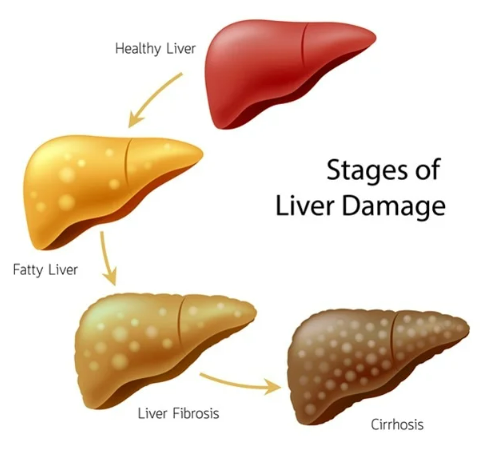Let’s talk about a hidden adversary that’s affecting millions but is rarely spoken of at our meetups, parties, or even doctor’s appointments—fatty liver disease.
The American Liver Foundation reports that up to 25% of people in the United States have this condition, often with no discernible symptoms. Mayo Clinic corroborates that it’s a global issue, affecting a staggering one-quarter of the world’s population.
So, why is it so under-the-radar? Because it’s often asymptomatic, and when symptoms do appear, they’re frequently mistaken for other health issues.
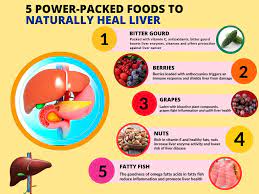 Fatty liver disease is a silent but escalating crisis, especially among women. Factors like obesity, diet, and lifestyle are significant contributors.
Fatty liver disease is a silent but escalating crisis, especially among women. Factors like obesity, diet, and lifestyle are significant contributors.
This isn’t a condition relegated to the elderly or to those with severe alcohol abuse problems—it’s happening to career-driven women in their 30s, to mothers juggling households and kids, and to health-conscious individuals who think they’re doing everything right.

Today, we’re diving deep into this topic to arm you with the vital information you need to protect yourself. If you’ve ever felt unexplained fatigue, noticed a bit more tummy fat, or felt a nagging pain in your upper abdomen and ignored it, this article is for you. Ignorance is not bliss when it comes to fatty liver disease; knowledge is your first line of defense.
Read on to unmask this silent killer, recognize its whispers, and learn proactive steps to keep it at bay. Because the first step in solving a problem is knowing there is one.
The invisible danger
For those wondering, “What’s the big deal about a ‘fatty’ liver?” – let’s get straight to the point. You must keep your liver healthy as it performs many vital functions such as: converting nutrients from the food you eat into essential blood components, boosts your immunity system, removes bacteria from the blood, maintains hormone balances in the body by storing essential vitamins and producing proteins and enzymes and most necessarily it helps in digesting our meals.
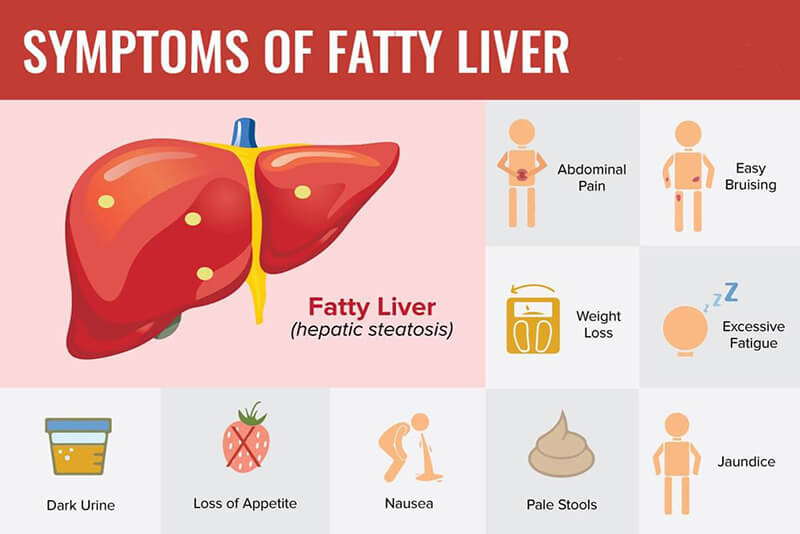 The symptoms
The symptoms
Feeling fine? That’s the tricky part. Often, fatty liver disease tiptoes around without any grand announcements. However, there are whispers:
Fatigue: More than the usual “I didn’t sleep well” tired. We’re talking “I can’t get through the day without a nap” exhausted.
Pain: A nagging discomfort or pain under the right rib cage, trying to hint that all’s not well.
Yellowing: Healthline, a renowned health information platform based in San Francisco, warns that yellowing skin or eyes might be a sign of advanced liver disease.
Behind the epidemic
The obvious villain? Alcohol. But, let’s not jump to conclusions. There’s also the non-alcoholic fatty liver disease.
Alcohol: It’s not your best friend if consumed excessively.
Obesity: Medical News Today states that being overweight increases your risk of fatty liver disease by up to 75%.
Sugar rush: High blood sugar isn’t just about diabetes; it’s an enemy to the liver. Harvard Health warns of its role in escalating liver risks.
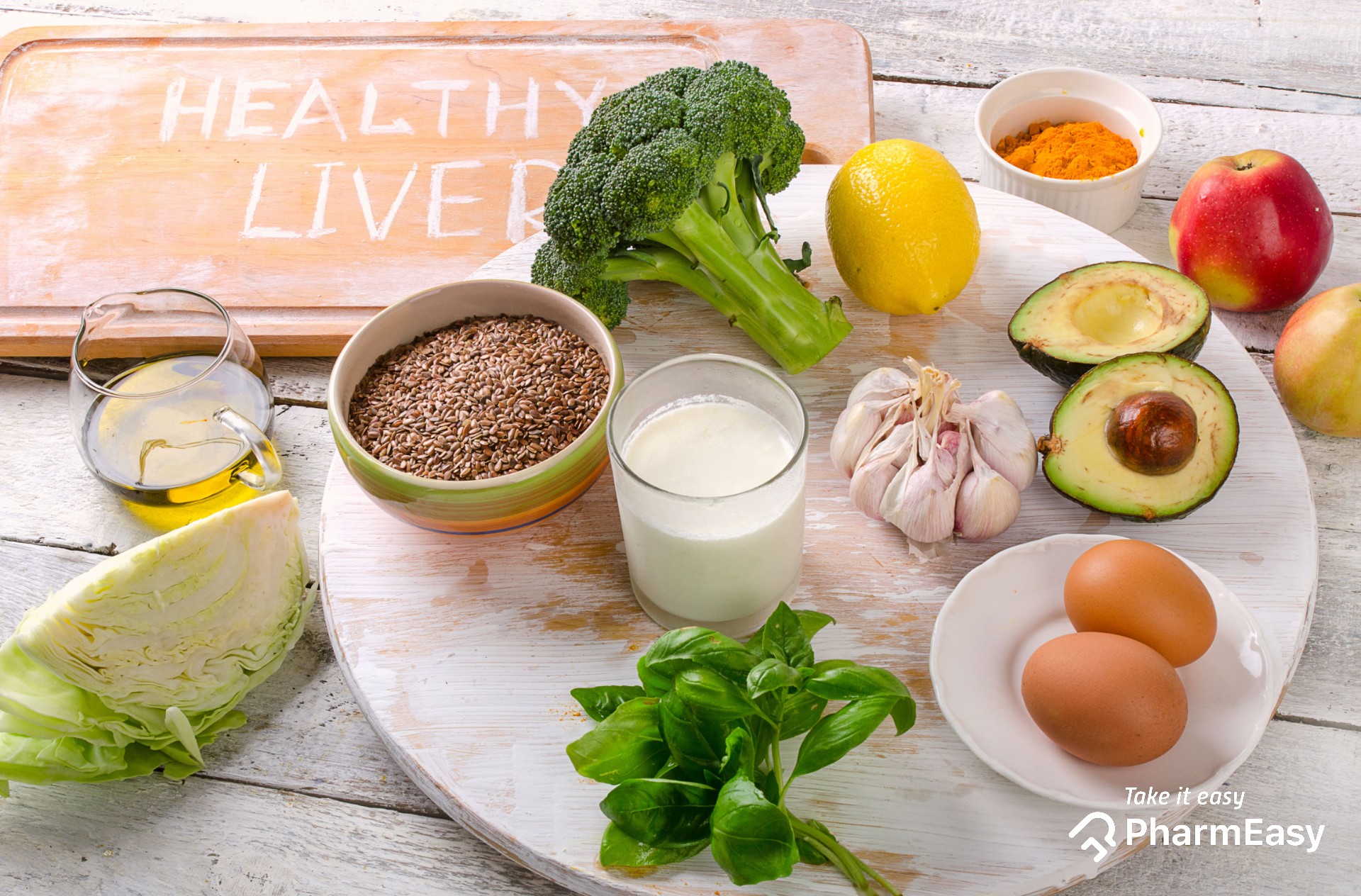
Taking charge of your health
Hold on to hope because it’s not all doom and gloom. There are ways to combat and even reverse this condition:
• Shed the weight: A modest weight reduction can significantly decrease liver fat, as per WebMD.
• Limit alcohol: It might be hard, especially during those girls’ nights out, but your liver will thank you.
• Healthy eating: Choose fruits, veggies, and lean meats, and let go of excess sugars and fats.
Verywell Health emphasizes how vital early detection is. Regular liver function tests are invaluable. Sharing even the smallest symptom with your doctor can make a world of difference.
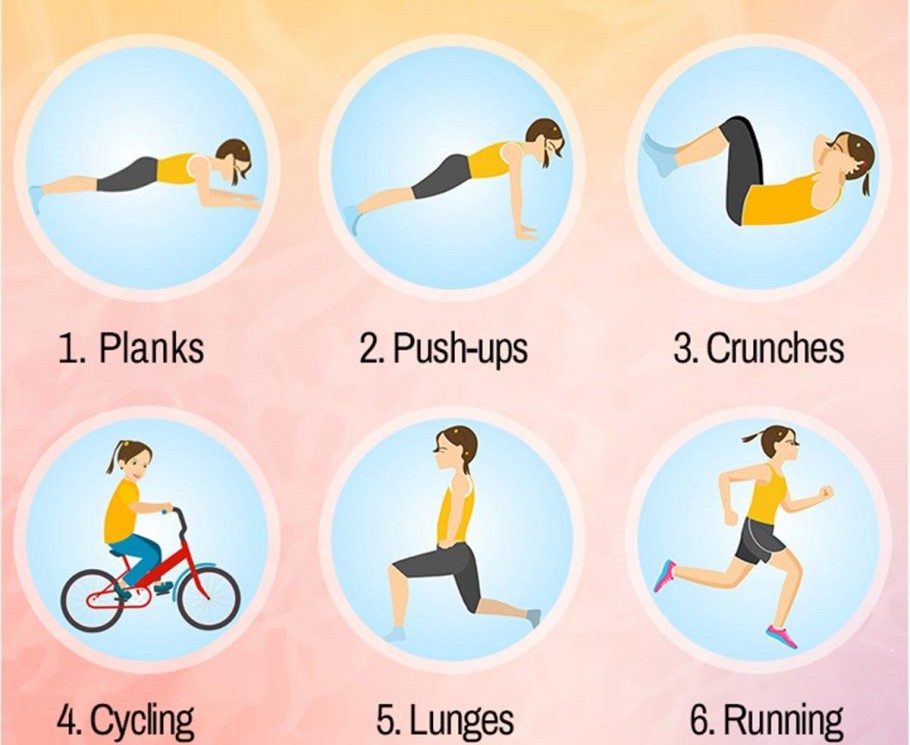 The bottom line
The bottom line
Ladies, your health journey is one filled with challenges. We often prioritize the well-being of our loved ones over ours. But what we need to remember is that by taking care of ourselves, we are also ensuring we’re there, healthy and strong, for those we cherish.
Being vigilant about silent conditions like fatty liver disease is not about paranoia; it’s about empowerment. Being informed is the first step to a healthier you. Remember, a whisper can sometimes save a life.
While this article offers valuable insights, always consult a healthcare professional for personalized advice.

